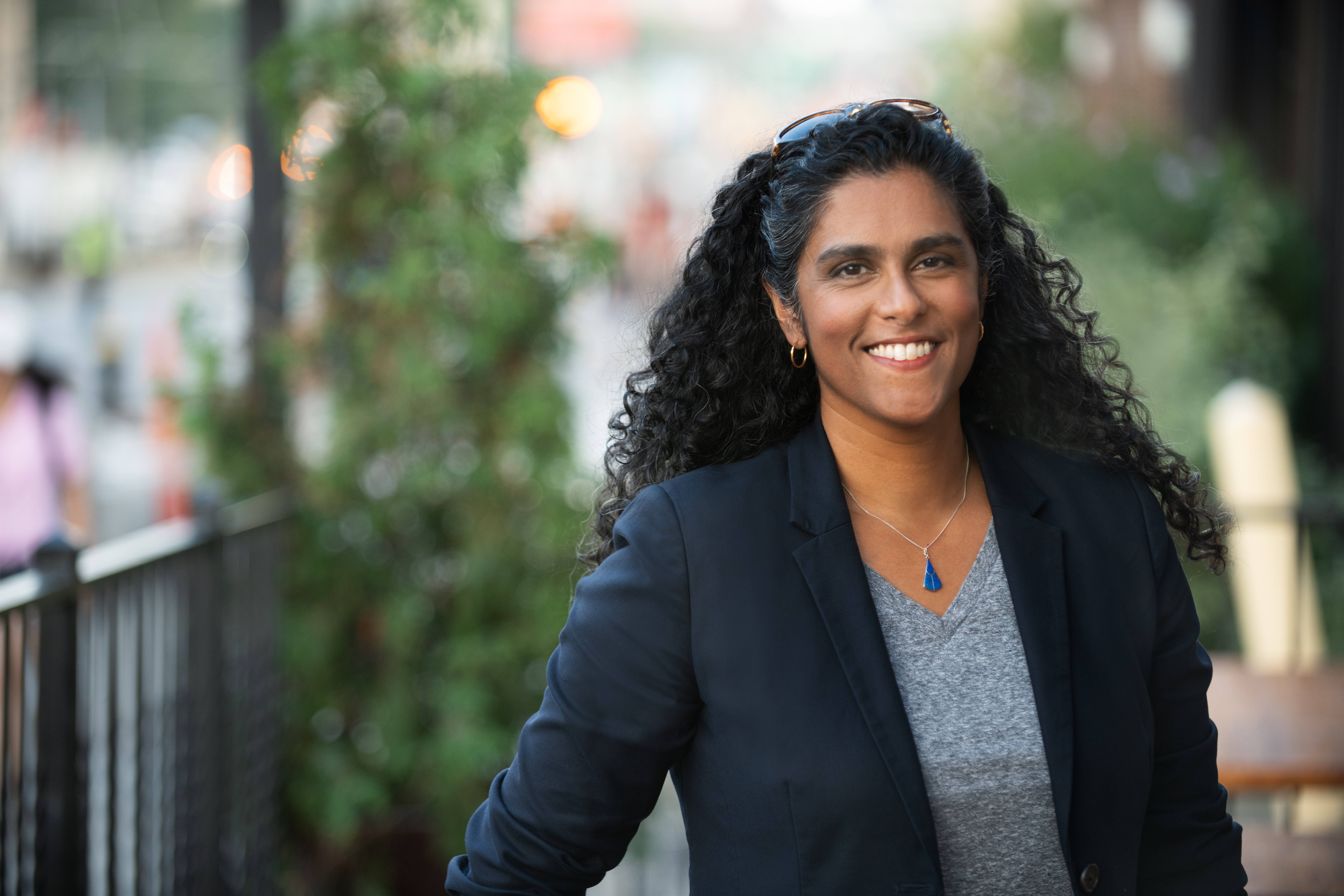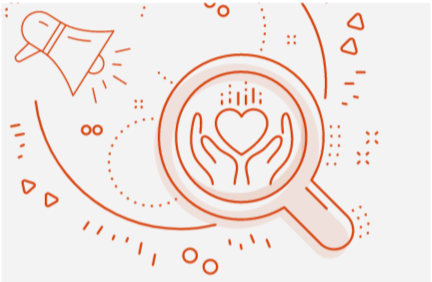Radio journalist and editor, National Public Radio
 Meghna Chakrabarti (Photo credit: Liz Linder)
Meghna Chakrabarti (Photo credit: Liz Linder)
At 10 a.m. every weekday, Meghna Chakrabarti’s voice beams out from her studio at the WBUR offices in Boston, Massachusetts; across the airwaves of more than 350 radio stations; and into the speakers of more than two million listeners all over the country. Chakrabarti, ’98, is the host of On Point, a national public radio show in which she interviews experts — like Jennifer Doudna, the Nobel Prize-winning biochemist behind CRISPR gene-editing technology, and Bruno Lozano, the former mayor of the border town Del Rio, Texas — in an attempt to shed light on some of the biggest contemporary issues facing our society, from climate change to racial justice to income inequality. “I pinch myself every day ’cause I get to do this,” she says. “I come out of most shows at the end of the hour thinking, ‘Oh my God, I did not know X about that.’ So, it is a thrill.”
As told to Katherine Cusumano
When you entered OSU in 1995, you studied civil and environmental engineering. How would you describe your experience?
I loved it. I sort of restarted my university career at OSU. My first year and a half of college, I was at Stanford; then I took some time off for mental health reasons. Stanford’s great, but students come largely from one socioeconomic tier. At
OSU, I experienced a really different kind of diversity: as a university that is dedicated to serving students in Oregon from all walks of life, there’s far more economic diversity. Experiencing all the different kinds of truths that people
bring with them into their student careers at OSU was very shaping for me.
How did you end up in journalism?
I was here in the Boston area to do a master’s degree in environmental science and risk management. My dad, who was a lifelong, passionate scientist, would always tell me, “If you want to be a great scientist, you have to love the experiments
you’re working on so much that questions about it keep you up at night.” When I came to the end of that degree, I had this revelation that engineering wasn’t keeping me up at night. I’d always had public radio on, so one day I wrote a letter to one of the journalists at WBUR. A week later, she sent me a message. She’s still in my life today — a huge mentor.
How did mentorship shape the direction that your career took?
Mentors have been hugely important in my life. It’s not just practical, career-based mentorship that matters. It matters in the workplace to have someone older and more experienced. Mentorship isn’t just a one-way thing, though. I think one
of the reasons why my mentors have been willing to help me is because they saw that I ran with it and worked hard.
Your dad, also an alumnus, made a similar shift from one career path, as a researcher in microbiology, to another, in computer science, working for HP. Did he have any advice?
My dad’s world began and ended with his love
for science. When he made his shift, it was because he wasn’t making enough money as a scientist at that time to sufficiently care for his family, in his mind. My parents were initially really concerned I wasn’t going to earn enough money.
So, my dad’s advice was “Don’t starve.” But beyond that, he would always tell me, “No matter what you choose to do, give your all to that thing.”
When you’re conducting an interview, how do you find the unexplored angles in a story?
This relates directly to my OSU education. It’s a similar process that shapes your thinking when you major in science or engineering.
You always come away with an experiment or observing a process in nature, and you’re like, “Well, how does that work? Why is that happening?” It’s very much the same in the kind of journalism that we’re trying to do.
American trust in the media is near a record low. How do you navigate that?
Fundamentally, when we’re doing the show, our most important job is to be the listener’s advocate. That means that my duty is to ask questions
of whomever is on the air that will clarify or elucidate their analysis or their point of view. Sometimes that means you have to ask challenging questions. I’m hoping that hearing our transparent efforts to get answers for our listeners helps
build trust in our show.
Is there anything that you have learned from talking with people whose points of view differ from your own that you have applied elsewhere in your life?
What I have learned is actually what I love most about this country —
that we have a lot of different points of view. I find a great deal of hope in that for us. People are complicated; Americans’ opinions are quite diverse and very issue dependent, and I think in the media, we do not present that enough. Working
on the show has made me check the source of my own points of view; it’s made me self-interrogate more. Coming from a science and engineering background, you have to be open to being wrong. People always ask me, “How did someone who majored
in civil engineering end up in journalism?” I’m like, “Actually, the method of thinking, in my mind, isn’t all that different.”
This interview was originally published in the Spring 2024 Oregon Stater. Read more OSU stories in the full issue, available to read online.

